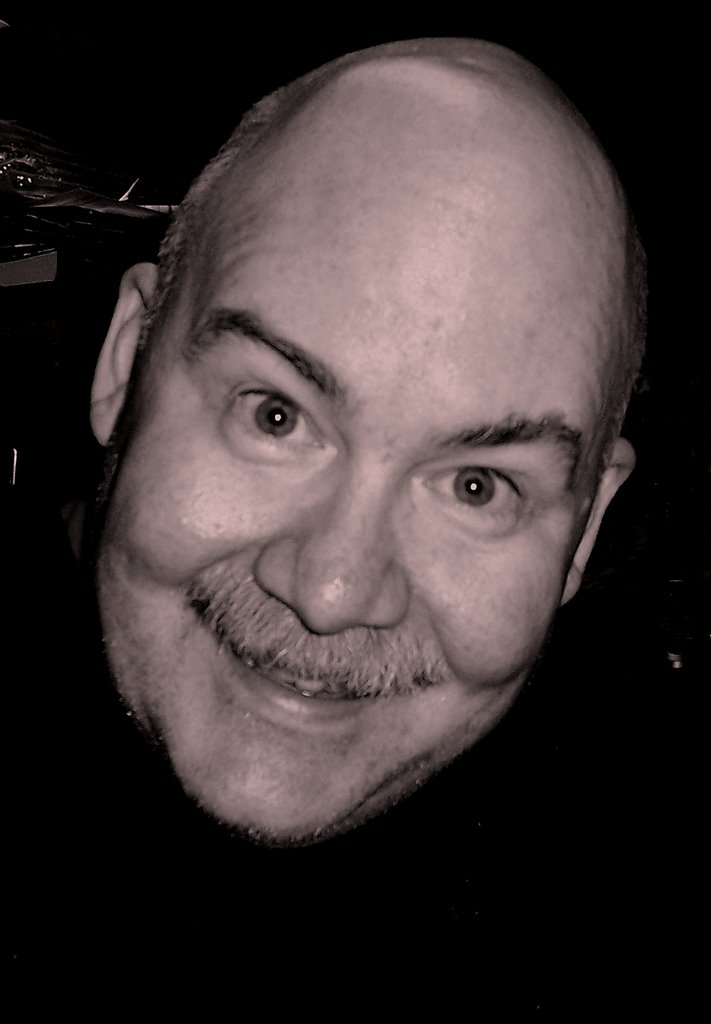MY FIRST RANT

Am I into the 'ukulele? I've always assumed so, but I have to ask myself. Aside from playing string bass parts and bass guitar parts in groups with other people, the only music I have learned to make is music I arrange for solo 'ukulele and train myself to play.

My piano playing is sloppy AND choppy; my guitar playing sounds as though I have claws for hands. It hurts my ears and discourages dancing.

At fourteen, I began playing music for my own enjoyment. It was on my dad's dusty Harmony 'uke (with molded fretboard) that I first began to look for the music going through my head. There was a lot of humming and a lot of strumming, but I got in the habit of making music so I could hear with my ears the tunes I was thinking about.

I played string bass for a living, however moth-eaten, for a dozen years, before a catastrophic attack of tendinitis in the mid-nineties cut it short. For two months I played nothing, and then I began to play 'ukulele, just a little every day. From playing bass in other people's bands I'd committed to memory a few hundred tunes, and a couple dozen of them were just stinking up the waiting room. I had to learn to play them on 'ukulele just to help exorcise them from my thoughts, and before long I was playing 'ukulele all day.

I've gone from three crossword puzzles a day to three a year. I take the 'ukulele anywhere and everywhere, and I'm forever playing on it just as quietly as I can. I've found unexpected rewards in playing it quietly. The louder you play it, the faster the decay, i.e., the plunkier the tone. The thing sounds prettier and has a warm sustain when played quietly. It's kind of adddictive.

I've come to understand music more fully because of playing music on the 'ukulele. I love the sound of the thing, particularly my own instrument, strung and tuned away from standard but entirely to my taste. Your 'ukulele? I guess it would be polite to take an interest in everyone else's 'ukulele, but I have music to learn, and I'm not going to live forever.

I am wild about Jim Beloff's
The Ukulele - A Visual History, and there are a couple of living 'ukulele players I enjoy listening to, but with a few exceptions, the great big 'ukulele community and I met, made eyes at each other, and then just sort of lost each other's numbers. As a 'uke nut I feel wholly inadequate. Am I trawling for 'ukuleles on eBay, collecting 'uke memorabilia and tiki mugs, getting a 'ukulele themed aloha shirt, going out to hear 'ukulele players? Not so much. It all takes money. I've been a musician most of my adult life. Apart from playing music, life is a scramble for gigs interspersed with chores at home and driving gear around. Am I trying to figure out a way to get Bobby Black in a recording studio with me again? More like that.

I apologize if the name of my web log aroused an appetite for 'ukulele-themed materials without doing anything to satisfy it. I'm doing my very best.





